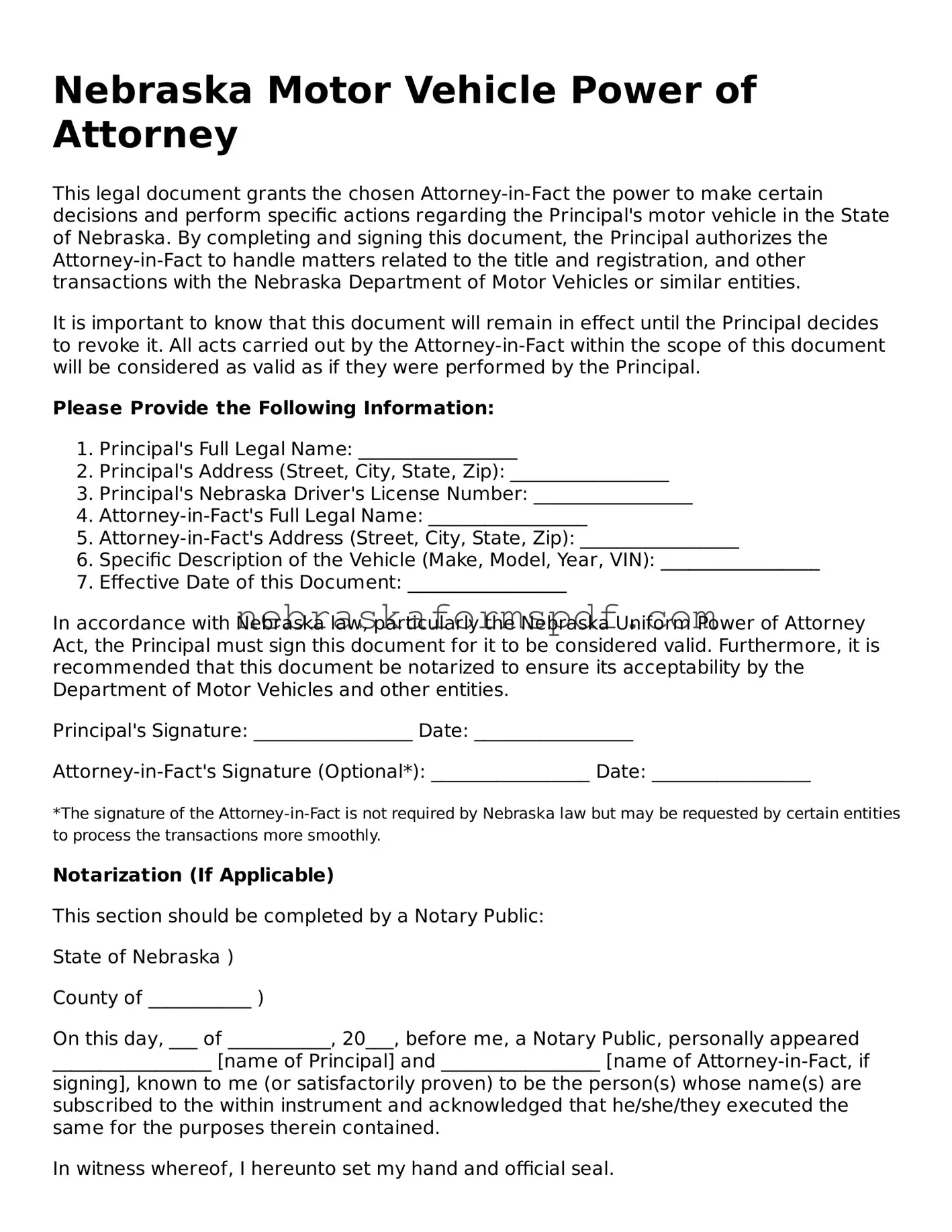Fillable Nebraska Motor Vehicle Power of Attorney Template
The Nebraska Motor Vehicle Power of Attorney form is a legal document that allows a vehicle owner to designate another person to handle matters related to their motor vehicle on their behalf. This could include tasks such as registration, titling, and other transactions with the Department of Motor Vehicles (DMV). It's a tool for those who need assistance with their vehicle affairs, ensuring their matters are handled accurately and lawfully even in their absence.
Open Editor Here

Fillable Nebraska Motor Vehicle Power of Attorney Template
Open Editor Here

Open Editor Here
or
Click for PDF Form
Don’t exit with an incomplete form
Finish Motor Vehicle Power of Attorney online using a quick, guided process.